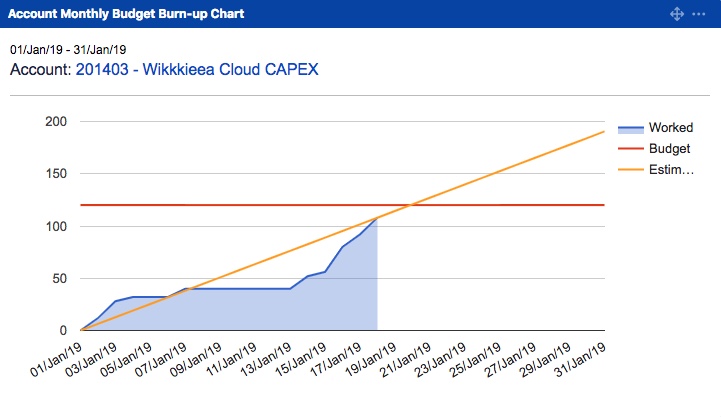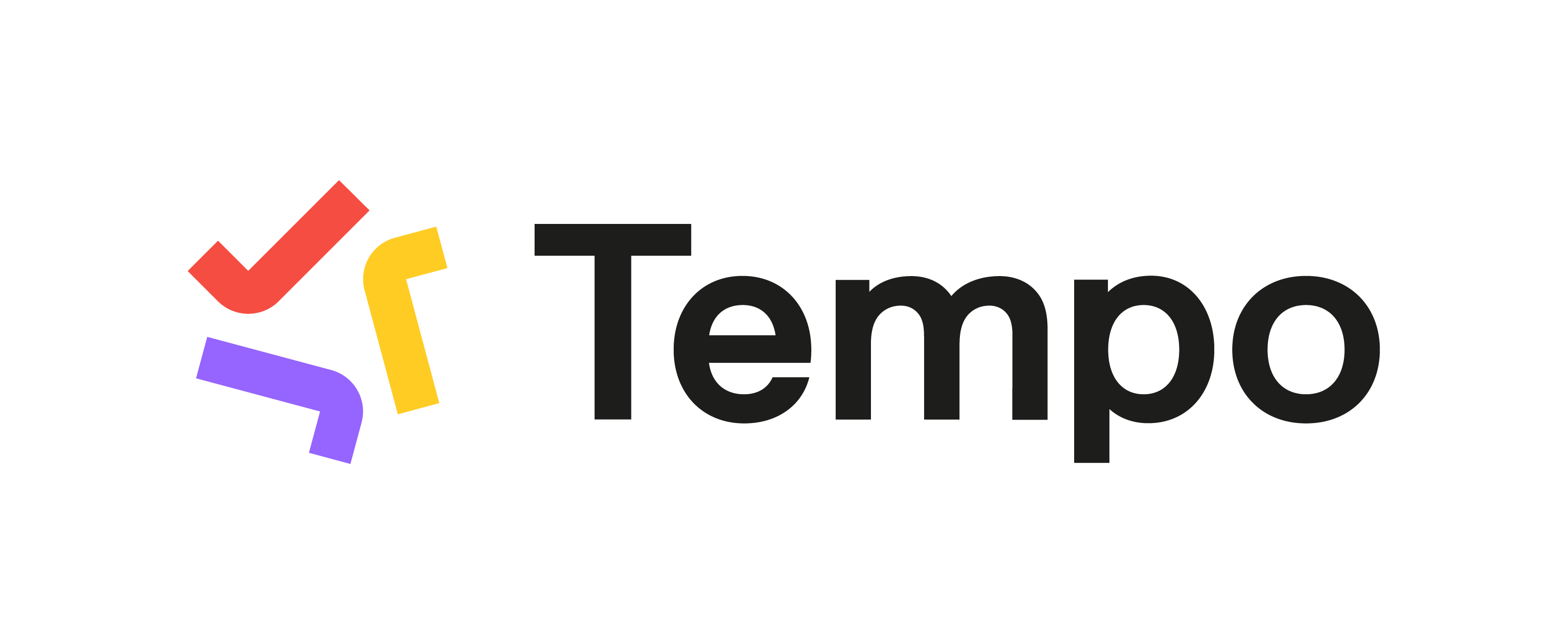Creating Tempo accounts requires the Tempo Account Administrator permission.
To edit an account, you must be the Account Lead or a Tempo Account Administrator.
You can create Tempo accounts to organize the logged time data in your organization. There are different reasons you may want to do this, such as for tracking billable work for the purpose of invoicing customers, or for tracking your capital expenditures (Capex) for the purpose of applying for tax credits. You can associate a customer with an account, but it's not required.
Follow these tutorials to learn how to create Tempo accounts for different purposes: Tracking Billable Work for Invoicing Using Tempo Accounts and Tracking Time on Capex for Tax Credits
You can also watch these videos that show the same workflows: How to Create Tempo Accounts for Tracking Billable Work and How to Create Tempo Accounts for Tracking Capex and Opex
A powerful feature with Tempo accounts is that you can connect the accounts to the Jira projects that you and your organization will be working on, which lets employees then log their time to a specific account associated with a Jira work item. Tempo accounts let you unite the work done across multiple Jira projects and multiple teams. Linking accounts to Jira projects lets you unlock the true power of accounts by capturing the time logged to them. Then you can get that time data easily in reports; for example, you can filter a Logged Time report by the accounts and get a clear view of how much time has been spent on each one.
-
You can also create Tempo accounts from imported data in *.csv or *.xml files.
-
The Account Custom Field is installed automatically with Tempo Accounts, but may need to be configured further, depending on how you want to associate the account information to work items or worklogs.
-
You can track the costs of time logged to Capex (Capitalized Type) and Opex (Operational Type) accounts in a Tempo project in Financial Manager.
-
You can create as many accounts as you need; however, we recommend closing accounts after a year to avoid linking to old Jira projects.
Creating an Account
-
Select Accounts in the Tempo sidebar.
-
Click + Create Account at the top-right.
-
Fill in the Create Account form:
-
Name - A descriptive name for the account. The combination of the account name and key is used to display the account in Jira work items or in the Log Time form in Tempo Timesheets, depending on configuration.
-
Key - The account key needs to be unique for the account. A suggested key based on the account name is auto-generated, but you can enter any value you like. For example, you could use this as a way to match this Tempo account to the account in your accounting or financial software. The key can use letters (a-z, A-Z), digits (0-9), underscore ("_"), dash ("-") or a dot ("."). You cannot change the key after the account is created.
-
Lead - The account lead is responsible for the account. This is often an account or project manager. Select an existing Jira user.
-
Category - Optional. Select an account category to associate with the account from the dropdown. The account category is a way to group different cost centers and work activities, such as Development or Marketing. There are four types of categories you can use to classify an account category: Billable, Capitalized, Operational, and Internal.
To create or edit categories, click the Settings icon in the side panel and select Account Categories.
-
Customer - Optional. Select a customer to associate with the account. Having a customer is useful when you're tracking billable (and non-billable) work for a client. However, a customer for an account can also be an internal group, such as a team or cost center. The Customer field can actually be used for any type of data you want to add to an account, such as geographical location or even year.
See Creating Customers for Tempo Accounts for more information.
-
Contact - Optional. Enter the name of the person as a contact point for this account, such as the manager in your client's company (external) or a person in another department in your own company (internal).
- Click the contact icon beside this field to enter the name of a Jira user on your Tempo instance.
- Click the A icon beside this field to enter the name of an external contact (name only, no email is required).
-
Projects - Select the Jira projects that include work items to which you will be logging time for this account. You can link the account to more than one project. See Linking Tempo Accounts to Jira Projects for other ways to link accounts to Jira projects.
-
-
If you want to create another account, check the Create another box and this form stays open.
-
When you are finished, click Create and the account is created.
As an example, this video shows how to create a Tempo account used for tracking Capex. The Customer field is left blank, but can be added later on by editing the account:
Making Accounts Global
You can make any account into a global account, which links it to all Jira projects on your Tempo instance.
-
Create an account as described above.
-
Click the Account name in the list to access its Account Overview
-
Under Links to Projects, select the Make this account global checkbox.
Editing Account Information
Account admins and team leads can edit account information.
-
In the Accounts view, click the name of the account you want to edit.
-
It is possible to edit:
-
Account admins can edit: Name, Customer, Category, Monthly Budget, Lead, and Contact.
-
Team leads can edit: Name, Customer, Category, Monthly Budget, and Contact.
The account Key cannot be changed after the account is created.
-
-
You can also link the account to Jira projects from the + Add Project Link, or click the x beside a project's name to delete the link.
Deleting the link means that this account won't be available in the Account field in a Jira work item or in the Log Time form (for the Account work attribute), so time can't be logged to it anymore.
Adding a Monthly Budget
Monthly Budget is used to display a status of hours worked vs the hours budgeted for the selected month. This is displayed in the Account Monthly Budget Burn-up Chart gadget available in Tempo Timesheets.
Enter the hours that can be spent on the account during the period in the Monthly Budget field.

